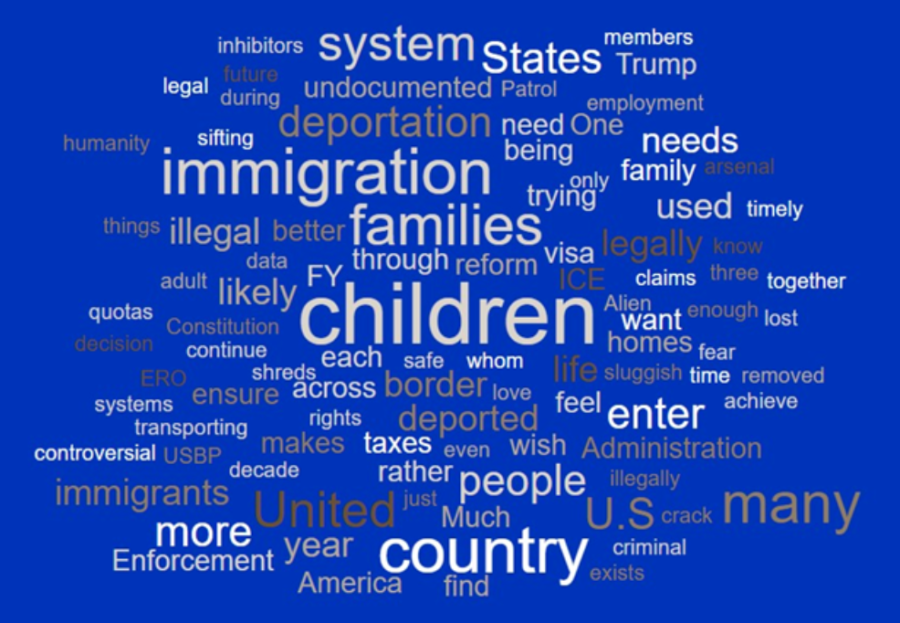Editorial: Derailing deportation
The ISD Editorial Board believes the Trump administration needs to change the ways in which they handle immigrant children.
June 2, 2020
The Trump administration continues to crack down on illegal immigration in the United States. One of the most powerful and controversial weapons in the arsenal being used against illegal immigration is deportation, the act of transporting illegal immigrants back to their country of origin.
Much to the dismay of many people, the Trump administration is citing the COVID-19 pandemic as an excuse to continue and accelerate deportations. U.S. Immigration and Customs Enforcement (ICE) claims that last year, 267,258 people were deported. That is enough to fill AT&T Stadium — the site of the Big 12 Conference Football Championship — nearly three and a half times. Among the hundreds of thousands that are deported each year are children.
The official 2019 ICE report states: “during the fiscal year ERO (Enforcement and Removal Operations) removed 5,702 aliens identified as family unit members based on USBP (U.S. Border Patrol) apprehension data from the initial surge in fiscal year of 2014 through the end of fiscal year of 2019, as well as 6,351 UAC (Unaccompanied Alien Children).” Altogether, this makes 12,053 children and families who were deported by the United States in 2019 alone. This has many people praying for mercy and change, asking, “Where is humanity?” and saying the decision to deport children is the “opposite of love and compassion.”
The deportation of children often results in the destruction or endangerment of families, many of whom will likely never find each other again. Activists in the U.S. want to see children and families kept together, at all costs. By the United States Constitution, the rights of these children, whether they are undocumented or not, are “inalienable.” Protesters say no expense can be spared when either trying to keep families united, or when trying to find homes for children who have lost their families. Many wish their taxes would be used to fund homes for these children rather than what they are used for today.
Something needs to change.
Immigrants come to America in search of a better life. The immigration system exists so we know who is in the country and can ensure everyone is accountable for paying taxes and contributing to society. Supporters of deportation claim criminal records, drugs, laziness and competition for employment as reasons the system needs to exist and needs to do more to control immigration and those who want to enter the country must do so legally. But those coming into the country illegally are not any more prone to these negative things than Americans and many of them wish to enter the country legally, but feel it is impossible.
In an ideal world, if you wanted to enter the U.S., you would only need to clear a simple background check to be permitted across the border. Reality is much more complicated: the system is filled with backlogs, quotas, limits, lottery systems and likely more inhibitors to immigration. According to the American Immigration Council, if you are the an adult child of a U.S. citizen and you are from Mexico or the Philippines, you should expect to wait over 20 years for a visa. That is just a visa, not even citizenship.
This sluggish system makes it extremely challenging for those seeking a better life in America to achieve it legally. Many undocumented immigrants feel the risk of deportation is worth saving a decade of their life sifting through paperwork. The system needs reform so people can enter the country in a legal and timely manner, without the fear of their family being ripped to shreds. However, that reform is likely to take a lot of time and resources to implement, so until changes can be made, we, the people, need to make sure our leadership keeps children and families safe and united with one another rather than shipping kids across a border to a less certain future.







